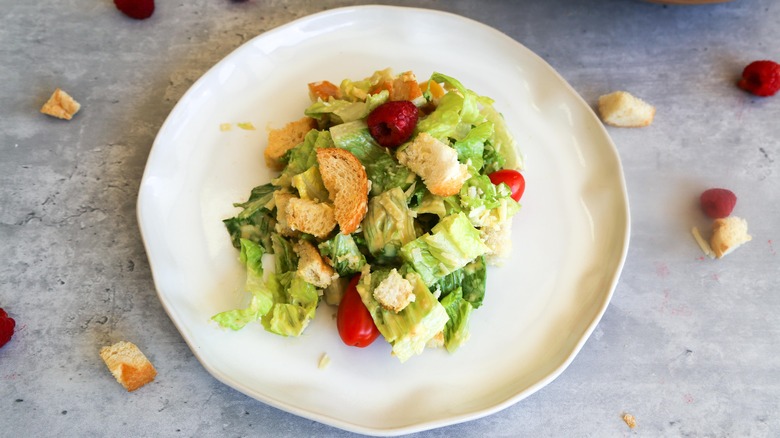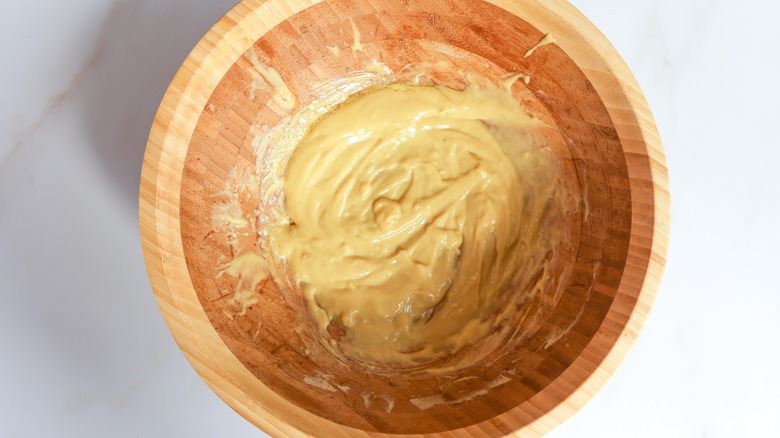Dijon Mustard Adds A Mouth-Watering Tang To Caesar Salad Dressing
The key to a great Caesar salad is in the dressing, and the key to a great dressing is Dijon mustard. When it comes to this spirited condiment, a little goes a long way. This stuff is powerful, with a front-facing burn that hits you as soon as it lands on your tongue. The feeling is not unpleasant but intoxicating, thanks largely to the smooth heat of its aftertaste.
For recipe developer Maren Epstein, Dijon plays a key part in her Caesar salad recipe. She directs that a 2-teaspoon dollop be added for four servings. The light and crisp croutons, fresh Romaine lettuce, and smooth egg yolks balance out the acidity and strong taste in the mustard, which alleviates the nose-burning sensation we so often associate with Dijon. This leaves us free to enjoy the intriguing mix of sweet and spicy that lingers after the immediately punchy tang.
A Caesar salad isn't the only recipe that calls for mustard. Adding a slather to your ham and cheese sliders will elevate what is already a crowd-pleasing classic. It also adds an invigorating zing to a Croque Madame, an eggy variation of the Parisian breakfast staple, the Croque Monsieur.
Why is mustard used in dressings?
Dijon's usefulness isn't limited to taste alone. It also plays a key part in influencing the texture of your salad dressing. Maren Epstein's dressing, which uses anchovy paste, crushed garlic, egg yolks, lemon juice, olive oil, and Worcestershire sauce, deploys a complex mixture that varies greatly in terms of texture and solidity. This combination can be difficult to smooth out, even with the help of a blender, which is where the mustard comes in.
Mustard is an emulsifier. This means its makeup enables it to bind oil and liquid particles together to create an emulsion, dispersing oil and water particles in a way that results in a stable, smooth texture. This is vital for a salad dressing, as you want the flavors to combine across the entire plate instead of congealing in separate areas.
If Dijon is too strong for you, other mustards will do the same job without providing the same flavor profile. For those who don't like mustard in general, are allergic, or don't have any in the fridge, there are other emulsifiers that can provide the same benefit. Mayonnaise is a great choice if you want something that doesn't influence the flavor, honey can add a pleasant sweetness, and tomato paste can bring an interesting herby kick, all while ensuring your dressing combines nicely.

